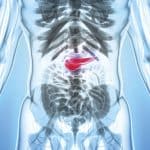Cancer Research UK has revealed that scientists have created one of the most detailed maps of breast cancer ever achieved.
According to the charity, the maps show how the complex cancer landscape – made up of cancer cells, immune cells and connective tissue – varies between and within tumours, depending on their genetic makeup.
The international team of researchers, funded by the £20 million Grand Challenge award from Cancer Research UK, say they have developed intricate maps of breast tumour samples, with a resolution smaller than a single cell.
The technique involved could one day provide doctors with an “unparalleled wealth” of information about each patient’s tumour upon diagnosis, allowing them to match each patient with the best course of treatment for them.
The team also say that in the future, it could also potentially be used to analyse tumours during treatment, allowing doctors to see in “unprecedented detail” how tumours are responding to drugs or radiotherapy. They could then modify treatments accordingly, to give each patient the best chance of beating the disease.
“At the moment, doctors only look for a few key markers to understand what type of breast cancer someone has” explained Dr Raza Ali, lead author of the study and junior group leader at the Cancer Research UK Cambridge Institute. “But as we enter an era of personalised medicine, the more information we have about a patient’s tumour, the more targeted and effective we can make their treatment.”
To develop the maps, the team looked within 483 different tumour samples for the presence of 37 key proteins, indicative of the characteristics and behaviour of cancer cells. Using a technique called imaging mass cytometry, they then produced detailed images, which revealed precisely how each of the 37 proteins were distributed across the tumour.
Professor Carlos Caldas, co-author of the study from the Cancer Research UK Cambridge Institute, said that the research has “shown that the effects of mutations in cancer are far more wide-ranging than first thought.
“They affect how cancer cells interact with their neighbours and other types of cell, influencing the entire structure of the tumour.”










